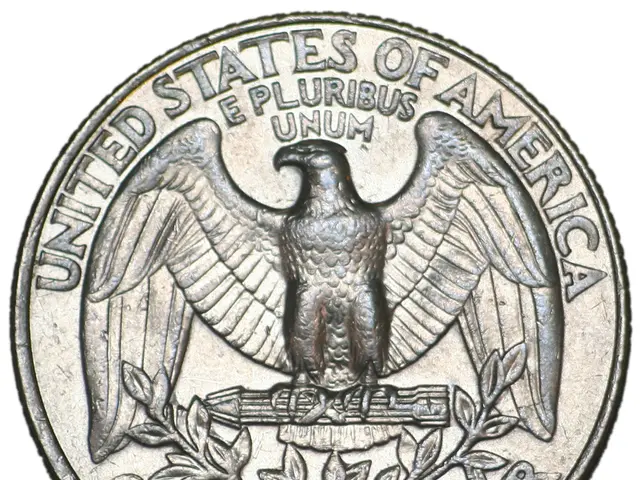Unvaccinated Delta Air Lines employees could soon face steeper health insurance premiums and limitations on sick days, according to a company memo obtained by CNN. The new measures, set to take effect on November 1, are a response to the high costs associated with COVID-19 hospitalizations and the company's desire to minimize the risk of infection in its workforce.
Currently, unvaccinated workers pay less for their health insurance than their vaccinated counterparts. However, starting November 1, vaccinated workers will continue to enjoy rate advantages, while unvaccinated employees will see an increase in their monthly payments by up to $200. The carrier aims to recoup the additional costs due to the increased likelihood of COVID-19 hospitalizations among unvaccinated workers.
In addition to higher premiums, Delta is also limiting the number of sick days unvaccinated employees can take if they contract COVID-19. As of now, any employee who tests positive for the virus can take up to 14 days of unpaid leave under certain circumstances. However, beginning September 12, unvaccinated workers who fall sick will only be eligible for COVID-19 leave for seven days. Any additional time off will need to come out of their accrued vacation or personal days.
The company has yet to detail how these changes will impact fully vaccinated workers who test positive for COVID-19. Delta's CEO, Ed Bastian, said that the changes would not apply to fully vaccinated individuals or those who have a legitimate medical or religious exemption.
The new sick leave policy aligns with a federal law passed last year, which allows certain employers to cut sick pay for employees who are unable to work due to COVID-19 quarantine requirements. According to Delta, this policy change applies only to those without full vaccination status and is in compliance with state and local laws.
Delta's moves are part of a broader trend in the private sector, as several major companies have implemented similar policies to encourage employee vaccination and address rising COVID-19 cases. This includes technology giants like Google and Facebook, as well as Wall Street financial institutions such as Goldman Sachs and Morgan Stanley.
However, some bosses and managers have expressed concerns about implementing strict vaccination policies, fearing they might drive away some employees. A survey by the Kaiser Family Foundation last June found that 50% of unvaccinated workers said they'd quit if required to get vaccinated.
At the same time, ignoring the risks posed by unvaccinated workers might have significant consequences, according to Scott Kirby, CEO of United Airlines. Speaking to CNN, Kirby noted that inoculation saves lives, and he supports vaccination mandates even as some employees express opposition to the policy.
The financial implications of the Delta variant are clear: since the beginning of 2020, Delta has lost over $12.9 billion. As one of the first major airlines to return to profitability, the carrier is refocusing on efforts to minimize costs and maintain a safer work environment for its staff and customers.
This new approach is likely to put further pressure on unvaccinated workers to get their shots, as the financial and health risks associated with not complying with employer policies continue to grow. As more companies embrace vaccination-friendly policies, including enhanced safety protocols and improved testing regimens, the financial and health consequences of remaining unvaccinated may become too great to ignore.

Related Articles:
Enrichment Insights:
Delta Air Lines' decision to impose steeper health insurance premiums and strict sick leave policies for unvaccinated employees aligns with broader efforts by companies to minimize the financial and health risks associated with COVID-19. These measures are designed to encourage employees to get vaccinated, while addressing concerns about the increased potential for infection and hospitalization among unvaccinated workers. However, the approach may be met with resistance from unvaccinated workers and could potentially lead to further polarization between vaccinated and unvaccinated populations. Enforcing such policies may also raise legal and ethical considerations, particularly in terms of discrimination and employee rights. Employers should carefully weigh the potential benefits and drawbacks to ensure compliance with relevant laws and regulations, as well as maintain a inclusive and equitable workplace environment.
- Financial and Health Implications: Companies like Delta Air Lines may see significant financial savings by encouraging employee vaccination and minimizing the risk of COVID-19 hospitalizations. This can also lead to healthier employees and improved overall workplace productivity.
- Stronger Safety Protocols: Implementing enhanced safety protocols, such as regular testing and improved personal protective equipment, can further reduce the risk of infection at the workplace. Additionally, mandatory vaccination policies may be explored by some employers, although this may require careful consideration and compliance with relevant laws and regulations.
- Communication and Education: Employers might focus on educating employees about the risks of not being vaccinated and the benefits of getting vaccinated. This could be part of a broader public health campaign aimed at increasing vaccination rates.
- Legal and Ethical Considerations: Implementing such measures might raise legal and ethical considerations, particularly regarding discrimination and employee rights. Employers should strive to balance the need to protect their workforce with the need to respect individual rights and freedoms, ensuring that any measures taken are fair and compliant with relevant laws and regulations.
- Impact on Employee Morale: Strict vaccination policies may affect employee morale and overall job satisfaction, leading to turnover or a hostile work environment. Employers should establish clear communication channels and address concerns in a transparent and empathetic manner to minimize negative impacts.








